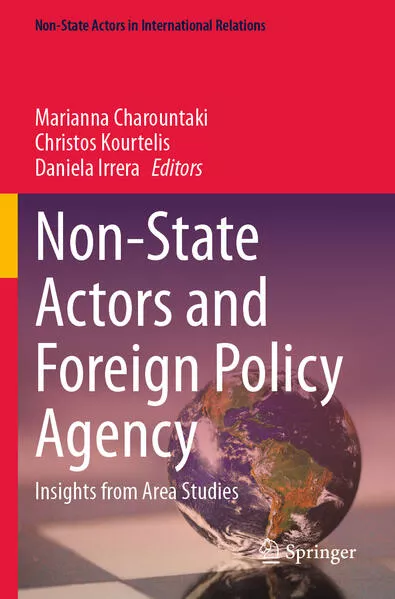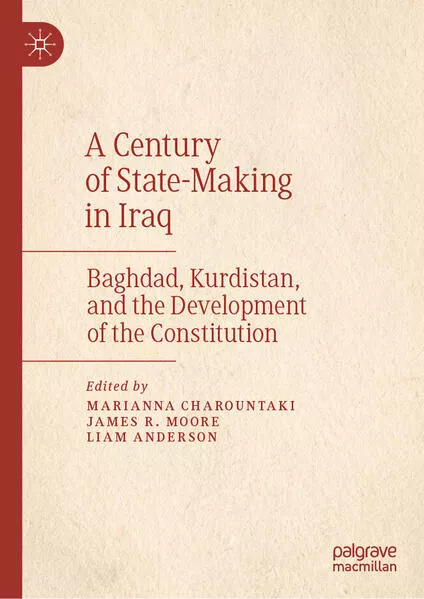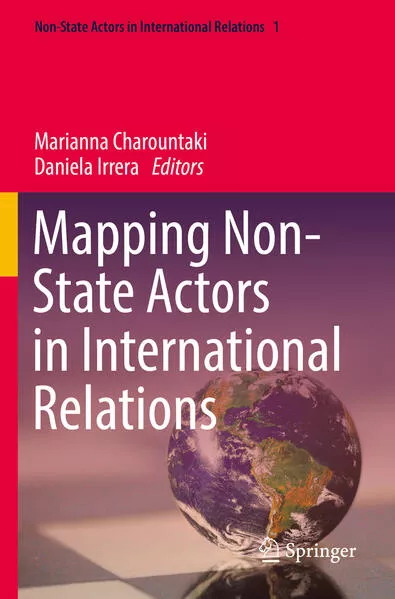
- Publikationen ca: 8
- Fragen & Antworten
Marianna Charountaki
Marianna Charountaki is Senior Lecturer in International Politics at the University of Lincoln (UK). She is a Trustee of BRISMES and convenor of BISA Foreign Policy Working Group. Her research lies at the intersection of International Relations theories, foreign policy analysis, and area studies with an emphasis on the Middle Eastern region. She has written extensively on non-state actors through the Kurdish case as well as on the state-non-state interactions in international relations.
Daniela Irrera is Professor of International Relations and Global Civil Society at the Department of Political and Social Sciences of the University of Catania (Italy), and Visiting Professor of Political Violence and Terrorism at the OSCE Academy in Bishkek. She is member of the ECPR Executive Committee. Her research is focused on non-state actors’ influence on global politics, both positive (civil society movements and NGOs) and negative (organized crime groups and terrorists).
Non-State Actors and Foreign Policy Agency
This edited volume discusses non-state actors as agents of foreign policy. It questions whether non-state actors can act as foreign policy makers and if the contemporary role of non-state actors constitutes a theoretical challenge to foreign policy. Chapters demonstrate the impact of non-state entities through the lenses of their direct role as decision-makers, with examples drawn from the African continent, the Middle East, Europe, and Asia.
A Century of State-Making in Iraq
As an interdisciplinary publication, this book will have a strong international appeal to those across the Middle East who are interested in the complex issues of state-building, democratic transitions and federalism. It will also appeal to the many scholars in North America and Europe engaged in the study of these questions.
A Century of State-Making in Iraq
As an interdisciplinary publication, this book will have a strong international appeal to those across the Middle East who are interested in the complex issues of state-building, democratic transitions and federalism. It will also appeal to the many scholars in North America and Europe engaged in the study of these questions.
Non-State Actors and Foreign Policy Agency
This edited volume discusses non-state actors as agents of foreign policy. It questions whether non-state actors can act as foreign policy makers and if the contemporary role of non-state actors constitutes a theoretical challenge to foreign policy. Chapters demonstrate the impact of non-state entities through the lenses of their direct role as decision-makers, with examples drawn from the African continent, the Middle East, Europe, and Asia.
Non-State Actors and Foreign Policy Agency
This edited volume discusses non-state actors as agents of foreign policy. It questions whether non-state actors can act as foreign policy makers and if the contemporary role of non-state actors constitutes a theoretical challenge to foreign policy. Chapters demonstrate the impact of non-state entities through the lenses of their direct role as decision-makers, with examples drawn from the African continent, the Middle East, Europe, and Asia.
Mapping Non-State Actors in International Relations
This edited volume addresses the role of non-state actors (NSAs) in international relations. From their emergence in the early 20th century, entities of non-state status have played a role of increasing prominence in international politics. Scholarly work has been slow to catch up, approaching NSAs mainly through the scope of legitimacy and international law or limiting focus to NGOs, international organizations, and economic corporations.
Mapping Non-State Actors in International Relations
This edited volume addresses the role of non-state actors (NSAs) in international relations. From their emergence in the early 20th century, entities of non-state status have played a role of increasing prominence in international politics. Scholarly work has been slow to catch up, approaching NSAs mainly through the scope of legitimacy and international law or limiting focus to NGOs, international organizations, and economic corporations.
Mapping Non-State Actors in International Relations
This edited volume addresses the role of non-state actors (NSAs) in international relations. From their emergence in the early 20th century, entities of non-state status have played a role of increasing prominence in international politics. Scholarly work has been slow to catch up, approaching NSAs mainly through the scope of legitimacy and international law or limiting focus to NGOs, international organizations, and economic corporations.







